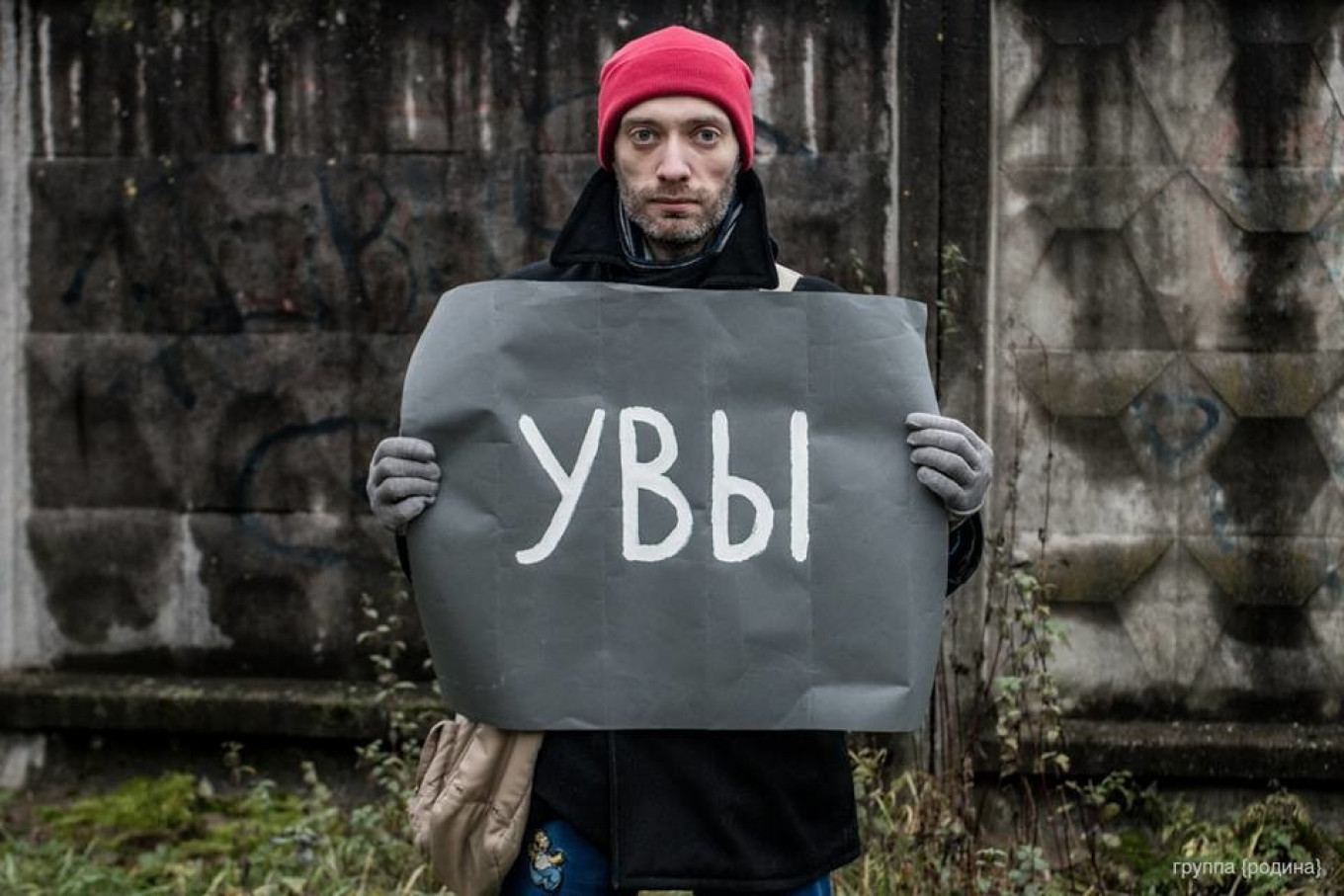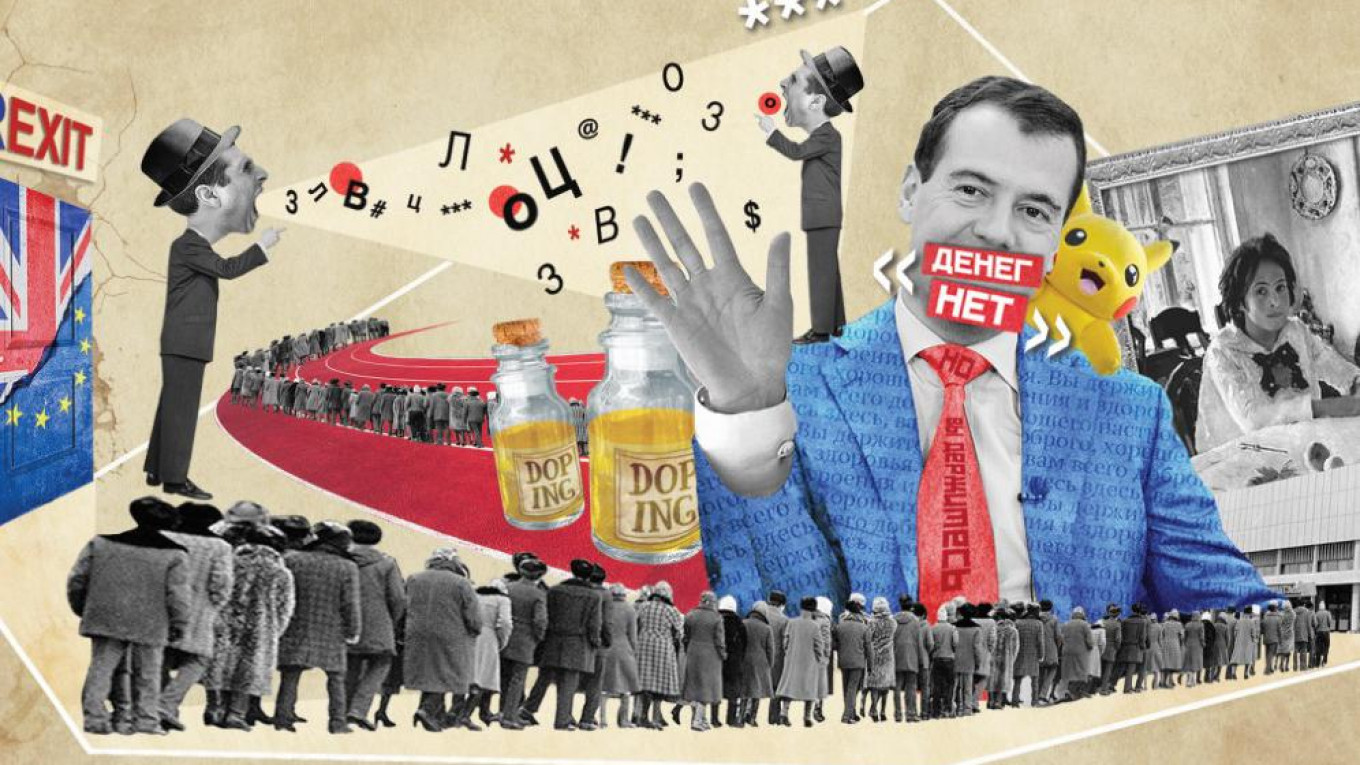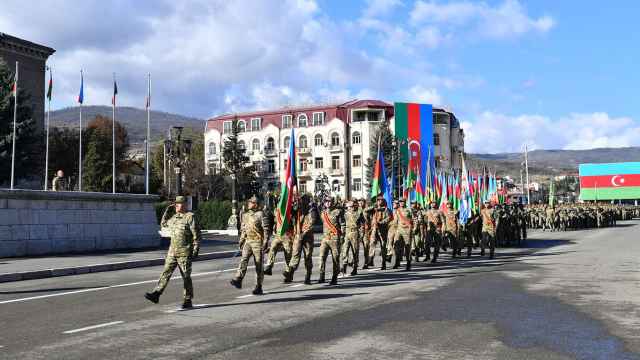Слова года 2016: 2016 words of the year
Ah, it’s that time of the year. The park is a winter wonderland filled with happy dogs and kids on sleds, my courtyard is a slushy battleground for parking places, and the pre-holiday traffic begins with a mild jam at 6 a.m. and gently rises all day to a full-scale, bumper-to-bumper, red-alarm disaster by час пик (rush hour). Half of Moscow is packing up for a vacation, and the other half is stocking up for a holiday at home. Just the time to take a break from the madness of корпоративы (corporate parties) and шоппинг (what you do in a mall) to sit down with a nice cup of tea and look back on the year in words.
Every year folks around the world choose the word of the year — that one word that encapsulates the spirit and meaning of the year gone by. In Russia, several groups do this. My favorite is called слова года (words of the year), headed by the linguist Mikhail Epstein. He and his language-minded colleagues vote on several categories of words and phrases.
This year their top word was брекзит (Brexit), also spelled брексит, брегзит, брегсит, or брэкзит. You remember Brexit, right? It was the end-of-the-world cataclysm after Grexit and before Donald Trump. Now when I’m worried about the twilight of democracy, the destruction of the world economic system and my spiraling health insurance premiums — not in that order — Brexit seems like a distant worry about something that might not happen.
Second runner-up was a three-letter word — no, not that one. This one was дно (bottom), as in дно экономики (bottom of the economic cycle), made famous in part by Alexei Ulyukayev, former minister of economic development. The joke was that he used to look for signs that the economy had bottomed out every once in a while, but then started groping for the bottom every month. The search was for a good cause: Где то дно экономики, от которого нужно оттолкнуться? (Where is the bottom of the economic cycle that we can push off from?) Unfortunately, Minister Ulyukayev is under house arrest right now, perhaps in part for either not finding the bottom, or maybe for bringing up the damn bottom to begin with.
In third place was a creature of a different sort — покемоны (Pokemon) that for several weeks kept thousands of Russian citizens busy and hundreds of Russian officials annoyed. The fad may have been short-lived, but Pokemon will live on in Russia for years as the names of millions of dogs, cats, guinea pigs and goldfish. I’m looking at you, Пикачу (Pikachu).
The second category is выражение or фраза года (expression or phrase of the year). This year the group voted for очередь на Серова/Айвазовского (line for Serov/Aivazovsky), which must sound like a secret code to outsiders. It refers to the long lines in icy winter snow or sweltering summer heat to see exhibitions of the 19th century painters Valentin Serov and Ivan Aivazovsky at the Tretyakov Gallery. They say the expression has come to mean overcoming great difficulties for the sake of art, genuine or not. I haven’t heard that, but then maybe I’m not hanging out with the right crowds. Too many Pokemon, too little art.
Right up there were other catchphrases of the year, like допинговый скандал (doping scandal), the only Olympics-related phrase, and ночь длинных ковшей (night of the long hoes), when everyone’s favorite, well-stocked, friendly convenience store was torn down in the middle of the night for being illegal. Notions of due process, sanctity of the contract and private ownership went out the window along with cheap grilled chicken and small packs of washing powder.
Epstein noted that this year did not produce any, or as many, nasty names for enemies as in previous years. This is a good thing, and would be cause for celebration if there hadn’t been a gazillion cyber-war words: кибервойна (cyberwar), кибератака (cyberattack) and кибервойска (cyber soldiers). And no one forgot about гибридная война (hybrid war).
Then we come to the fun categories, starting with антиязык (anti-language), that is, phrases that no one should ever utter. First place by a long shot was Prime Minister Dmitry Medvedev’s flustered comment to a group of angry old folks in Crimea, who were hectoring him about their low pensions. Денег нет, но вы держитесь! (There’s no money, but you hang in there!) he said, and a million meme-machines went into ecstatic motion. Folks also gave Medvedev another thumbs up, meme-speaking, for trying to rename the Americano coffee русиано (Rusiano). This instantly jogged older Russians’ memories of Столовая Номер 7 (cafeteria number 7) and a big bucket of what was called кофейный напиток (coffee drink), ladled lukewarm into thick faceted glasses. Delish.
The linguists also liked President Vladimir Putin’s slip, er, statement, er, joke — that is, that thing he said about the borders of Russia, which нигде не заканчиваются (never end). Russia watchers in neighboring countries said: Это не смешно (That’s not funny.) British people, on the other hand, said, “Oh, we had that once, too. ‘The sun never sets on’ and all that. Didn’t end well.” See above, брекзит.
Неологизм года (neologism of the year) is the category where the linguists get to kick back and have a great time inventing clever, funny, apt words. This year the winner was зловцо — злое слово (nasty word). There were a lot of them this year, and I guess they needed their own name. My favorite came in second place: неуезжант. This is a word to describe a new phenomenon: someone who chooses not to emigrate or move abroad, from не уезжать (to not go). Not невыездной (someone banned from travel abroad) or отказник (a refusenik, someone not allowed to emigrate) — неуезжант (a stayer).
But my personal favorite word of the year — what captures the mood and spirit of 2016 — was the simple увы (alas). Увы is used more often in Russian than alas is used in English. The Russian увы is uttered, usually with a sigh and often with a slightly theatrical shrug of the shoulders, in situations that are bad, that you regret, but that you can’t change or fix. Perfect for this year, no?
I think the увы thing began in St. Petersburg with a rally called депрессивная демонстрация (depressing demonstration) where forlorn demonstrators held up placards that read: Увы (alas); Ничего (Nothing); Надежда только на смерть (Our Only Hope is Death). Here увы is the new ура (Hurrah!), the word usually shouted at rallies or combined with other words to give a jingoistic zing, like ура-патриот (a “hurrah, boys!” patriot).
This wasn’t an Ура! Крымнаш! (Hurrah! Crimea is ours!) kind of year. It was the kind of year where you hold увы-парад (a demonstration, alas) in увы-страна (our country, alas).
And that was 2016. Увы.
Michele A.
Berdy is a Moscow-based
translator and interpreter, author of “The Russian Word’s Worth,” a collection
of her columns.

A Message from The Moscow Times:
Dear readers,
We are facing unprecedented challenges. Russia's Prosecutor General's Office has designated The Moscow Times as an "undesirable" organization, criminalizing our work and putting our staff at risk of prosecution. This follows our earlier unjust labeling as a "foreign agent."
These actions are direct attempts to silence independent journalism in Russia. The authorities claim our work "discredits the decisions of the Russian leadership." We see things differently: we strive to provide accurate, unbiased reporting on Russia.
We, the journalists of The Moscow Times, refuse to be silenced. But to continue our work, we need your help.
Your support, no matter how small, makes a world of difference. If you can, please support us monthly starting from just $2. It's quick to set up, and every contribution makes a significant impact.
By supporting The Moscow Times, you're defending open, independent journalism in the face of repression. Thank you for standing with us.
Remind me later.








